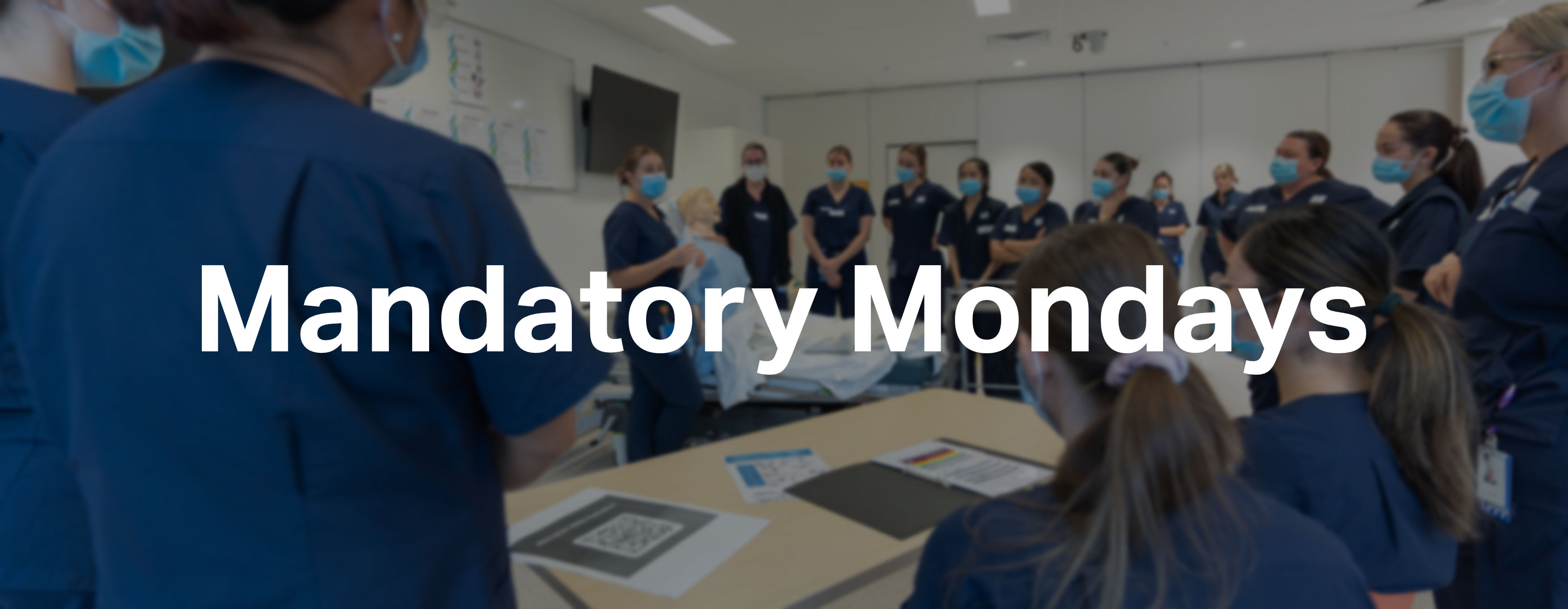CALHN Nursing Education Courses
Available Courses – Alphabetical
- Site:
- CALHN Learning Central
- Course:
- CALHN Learning Central
- Book:
- CALHN Nursing Education Courses
- Printed by:
- Date:
- Tuesday, 16 September 2025, 6:03 PM
Table of contents
- Available Courses – Alphabetical
- 2025 Mandatory Mondays- BLS & Manual Handling
- ALS1: ARC Immediate Life Support Course CALHN - 1 day course (TQEH/RAH Campus)
- 2025 BLS Blitz Practical Assessments
- CALHN Advanced Life Support Instructor (ALS Instructor) Program
- Advanced ECG Analysis
- Acute Care Essentials Full Day Course
- Basic Life Support Instructors (BLS Instructor) Program
- Basic Life Support Practical Assessment - Glenside Campus
- Care Coordination and Planning (Shift Coordinator)
- Clinical Supervision
- Clinical Teaching and Engagement
- Coaching and Mentoring for Success (Preceptorship)
- Comprehensive Clozapine Training Two Day Workshop - Glenside Health Services
- Complex Behaviour (Behaviour Support) Education
- Connecting with People - Suicide Response Training (Glenside Campus)
- Continence and Catheter Management
- Deteriorating Patient Education
- Diabetes Education: Managing the Patient with Diabetes
- Diabetes Education Day for Nurses - CALHN Diabetes Education Service
- Falls Prevention Training
- Geriatric Oncology Nursing Education Day
- Fundamentals of Cancer Nursing Workshop, Day One
- Fundamentals of Cancer Nursing Workshop, Day Two, “Oncological Emergencies”
- Hospital Advanced Life Support (HALS) for RN's
- Introduction to Cardiac Monitoring and ECG Analysis
- Introduction to Haematology
- Level 3 LHN Lead Trainer, Long Acting Injections - Mental Health Clinical Program
- Long Acting Intramuscular Injection - Trainer / Refresher Workshop
- Medication Safety Professional Development Day 2025
- Mental Health Skills for General Nurses
- Level 3 Metabolic Health and Biomedical Measurement LHN Lead Trainer
- Metabolic Health Trainer Refresher (Glenside Health Services)
- Nursing Upskill Program
- Palliative Care Study Day
- Pharmacology for Nurses - Study Day
- Portfolio and Change Management for Clinicians Tier 1
- Preventing and Responding to Complex Behaviours (PRCB) Training – Foundation
- Safety Interventions Training Foundation
- Safety Intervention Training (Glenside Health Services)
- Safety and Quality Fundamentals for Clinicians - Tier 1
- Supported RN and EN Program CALHN
- Tracheostomy Management - Practical Sessions CALHN
- Vascular Access Program: including Venepuncture / Peripheral Intravascular Cannula (PIVC) Insertion
- Wound Care Education
- Trauma Informed Care and Practice - Glenside Health Services
2025 Mandatory Mondays- BLS & Manual Handling
Make your Monday Mandatory.....
 Book BLS Practical session - Click Here
Book BLS Practical session - Click Here
 Book BLS Practical session - Click Here
Book BLS Practical session - Click Here The 2025 BLS Practical is a 30-minute session and covers the roles and responsibilities of the 1st, 2nd and 3rd responders in the recognition and management of unresponsive and not breathing normally person as per the Australian New Zealand Committee on Resuscitation (ANZCOR) Guideline 8.
 Book Manual Tasks Practical session - Click Here
Book Manual Tasks Practical session - Click Here
Please don't be late to your session as you will be turned away and will need to rebook at the next available.....
ALS1: ARC Immediate Life Support Course CALHN - 1 day course (TQEH/RAH Campus)
This 1 day course designed to give the candidate the skills for managing a cardiac arrest or other medical emergencies in a clinical setting. The course covers recognition of the critically ill patient, airway management, resuscitation procedures, defibrillation and basic drug therapy.
The objectives of the ARC Advanced Life Support Level 1: ALS1/ILS Course are to train health care personnel:
- to manage patients in the immediate periods of crisis aiming to prevent deterioration and cardiopulmonary arrest
- in common causes and strategies for the prevention of cardiopulmonary arrest, and the ABCDE approach
- in initial resuscitation and defibrillation (manual and / or AED) and simple airway management
- to manage patients in cardiopulmonary arrest until arrival of the resuscitation team or expert help
- to participate as members of the resuscitation team
Please note all courses are held in the Nursing Education Centre at The Queen Elizabeth Hospital & Royal Adelaide Hospital
Dates
2025
Thursday, 20 February 2025 (RAH) - COURSE FULL
Friday, 21 February 2025 (RAH) - COURSE FULL
Wednesday, 5 March 2025 (TQEH) - COURSE FULL
Thursday, 3 April 2025 (TQEH) - COURSE FULL
Friday, 4 April 2025 (TQEH) - COURSE FULL
Thursday, 15 May 2025 (RAH) - COURSE FULL
Friday, 16 May 2025 (RAH) - COURSE FULL
Tuesday, 10 June 2025 (TQEH) - COURSE FULL
Wednesday, 11 June 2025 (TQEH) - COURSE FULL
Wednesday, 2 July 2025 (TQEH) - COURSE FULL
Thursday, 3 July 2025 (TQEH) - COURSE FULL
Tuesday, 26 August 2025 (RAH) - COURSE FULL
Wednesday, 17 September 2025 (TQEH) - COURSE FULL
Thursday, 18 September 2025 (TQEH) - COURSE FULL
Tuesday, 21 October 2025 (RAH) - COURSE FULL
Wednesday, 22 October 2025 (RAH) - COURSE FULL
Friday, 28 November 2025 (RAH) - COURSE FULL
Thursday, 11 December 2025 (RAH) - COURSE FULL
Friday, 12 December 2025 (RAH)
Please Note:
- Applications must be submitted at least 4 weeks before course date.
- Due to limited places, priority will be given to staff members for whom ALS1 accreditation is a mandatory requirement.
- Submission of application is not confirmation of a place. Confirmation will be via an email from Nursing Education.
If you require further information, please email enquiries to:
nursingeducation.applications@sa.gov.au
or Telephone: 7074 3500
Cost
Central Adelaide Local Health Network Employee $100.00
SA Health Employee $200.00
Full fee paying Applicant $450.00
Cancellation Policy
- A minimum of 2 weeks’ notice is required to reschedule or cancel. Consideration of extenuating circumstances will be at the discretion of the Course Director & the Nursing Director, CALHN Nursing Education.
- Full payment is required in advance of the course.
- The Certificate will be withheld until course fee is paid in full.
- The Candidate having applied for & being confirmed into a course, gives less than two weeks’ notice or fails to attend will have the total (100%) course fee withheld.
- If a course is cancelled and the course manual is not returned within two weeks a $50 manual replacement fee applies.
Please note - your AHPRA
number & payment details must be completed on the application. This is a
requirement by the Australian Resuscitation Council - if this is not completed
your application will be returned.
CALHN & SA Health employees click here to apply
All other applicants click here to apply
Please return your application to the Royal Adelaide Hospital, CALHN Nursing Education, 5D390
This course provides an Immediate Life Support Certification (ARC Advanced Life Support Level 1: ILS)

2025 BLS Blitz Practical Assessments
The 2025 BLS Blitz Practical Assessments are offered to CALHN's staff - however it is recommended that all Nursing staff book into a 30-minute Mandatory Monday- BLS Practical Assessment.
The 2025 BLS Blitz are designed to be a walk-in 10-minute assessment- on the delivery of quality compressions and the early use of an Automatic External Defibrillator adhering to the principles of AED safety, in accordance with the Australian Resuscitation Council (ANZCOR) Guideline 10.1 and the NSQHS Standard 8 Recognising and Responding to Acute Deterioration.
It is recommended that you review the BLS theory prior to attending the BLITZ as the Theory may have changed since your last visited the BLS section in Learning Central and Remediation is not offered at a BLS Blitz. Should you require further assistance you will be asked to review the online resources and arrange a follow up practical assessment with a Basic Life Support Instructor (BLSi).
The BLS BLITZ is a Walk-in 10-minute assessment session conducted at both the RAH and TQEH the dates and times for the sessions are:
RAH - DATES TIMES and VENUE
22nd April 2025
0800-1100
RAH - Level 3D, Community Space- located near CIBO
25th June 2025
1000-1300
RAH - Level 3D, Community Space - located near CIBO24th July 2025
1300- 1600
RAH - Level 5D, Room 5D363
TQEH - DATES TIMES and VENUE
20th May 2025
1300-1600
TQEH - Level 5A, Nursing Training Room 2
Please bring your mobile phone as attendance is recorded via a QR check out code.
CALHN Advanced Life Support Instructor (ALS Instructor) Program
Program Aim
The CALHN ALS Instructor program aims to provide, theoretical and practical information to the CALHN ALS Instructor candidate. The CALHN ALS Instructor role is primarily concerned with the delivery of simulated refresher sessions to all currently accredited ALS providers in clinical areas that utilise an Advanced life Support emergency trolley. Specifically , session content should cover Recognising and Responding to Deterioration, Basic Life Support and Advanced Life Support including knowledge of the equipment and medication on the Advanced Life Support Trolley.
Program Eligibility
The program is open to any clinician currently accredited as a basic life support instructor who is also an accredited Advanced Life Support provider currently working in a clinical area that utilises an Advanced Life Support Emergency trolley.
Line manager approval is an essential requirement. All suitable candidates interested in an opportunity to enhance their teaching and assessment skills are encouraged to apply. Training provided will be in line with current ANZCOR Advanced Life Support Guidelines.
Learning Outcomes
At the completion of the CALHN ALS Instructor program participants will:
- Facilitate practical Advanced Life Support training that adheres to current Australian Resuscitation Council Guidelines and CALHN Policies and Procedures.
- Facilitate practical Advanced Life Support training that encourages participant engagement in the learning process utilising adult learning and teaching principles and effective assessment and feedback skills.
- Explain and apply Work Health & Safety (WH&S) and Infection Control principles as related to ALS.
Program Content
- Role and responsibilities of the CALHN ALS Instructor
- Review of Learning Styles & Adult Learning Principles from BLS Instructor course
- Equipment and resources required for ALS practical refresher training
- Introduction to scenario-based training
- Providing Feedback
- WH&S Considerations.
Pre-application Requirements
- Current Basic Life Support Instructor
- Current Advanced Life Support provider
- Support from your manager to fulfil the role as a CALHN ALS Instructor for your Clinical area which has an Advanced Life Support Emergency Trolley.
Upon acceptance on a course, you will be given access to the CALHN ALS Instructors Program in Learning Central
Please contact margaret.mcinerney@sa.gov.au for further information.
Advanced ECG Analysis
Welcome
Advanced ECG Analysis is a one-day module is aimed at staff members with existing cardiac monitoring and ECG experience, looking to extend their knowledge.
Learning Objectives
Topics included in the Advanced ECG Analysis Program include:
- Electrophysiology
- Ectopics
- Biochemistry
- Inherited disorders
- Pacing
- The acute cardiac patient (including Bundle Branch Block & Axis)
This program supports and links to SA Health Nursing and Midwifery Strategic Directions 2023-2026: Care.
This program links to The National Safety and Quality Health Service (NSQHS) Standards:
1. Clinical Governance Standard
2. Partnering with Consumers Standard
5. Comprehensive Care Standard
8. Recognising and Responding to Acute Deterioration Standard
Pre-Requisites
- Eligible staff are Nurses in a relevant practice area with line manager support
Cost
For further information
For a guide to deteriorating patient education in CALHN please click here
If you require further information, please email enquiries to:
nursingeducation.applications@sa.gov.au
or Telephone: 7074 3500
Acute Care Essentials Full Day Course
Acute Care Essentials (ACE)
This program is designed to provide all nursing staff with the knowledge, skills and fundamentals of early recognition, systematic assessment and application of appropriate interventions at the bedside.
ACE is an 8 hour face to face professional development day utilising inquiry based learning, simulation and group discussion in a supportive, safe learning environment.
The program supports and links to Nursing and Midwifery Strategic Directions Care
This program links to The National Safety and Quality Health Service (NSQHS) Standards:
1. Clinical Governance Standard
2. Partnering with Consumers Standard
5. Comprehensive Care Standard
6. Communicating for Safety Standard
8. Recognising and Responding to Acute Deterioration Standard
Please Click Here to sign up.
For more information about Deteriorating Patient Education provided at CALHN (including Deteriorating Patient Assessment Refresher Scenarios) please Click Here.
Basic Life Support Instructors (BLS Instructor) Program
Program Aim
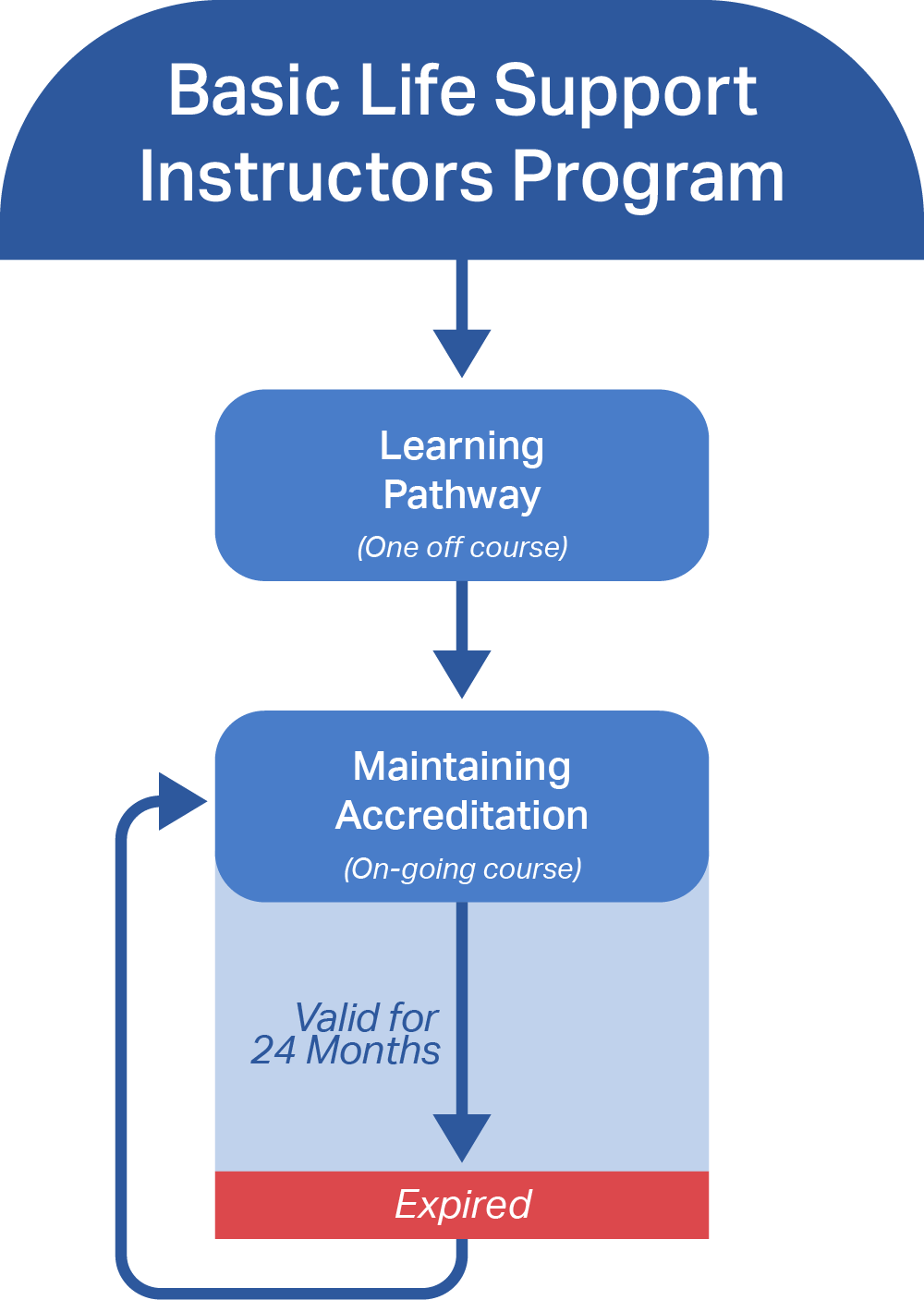 The BLS Instructor program aims to provide, theoretical and practical information to the BLS Instructor candidate, to instruct and assess other staff in their clinical area. Upon successful completion, the BLS Instructor will become engaged member of the CALHN basic life support training team.
The BLS Instructor program aims to provide, theoretical and practical information to the BLS Instructor candidate, to instruct and assess other staff in their clinical area. Upon successful completion, the BLS Instructor will become engaged member of the CALHN basic life support training team.
Program Eligibility
The program is open to all Clinicians with 3 years post graduate experience - Aboriginal Health Practitioners, Doctors, Nurses, Pharmacists, Physiotherapist and other Allied Health Disciplines who are interested in an opportunity to enhance their teaching and assessment skills in line with the 2023 ANZCOR Basic Life Support Guidelines.
Learning Outcomes
At the completion of the BLS Instructor program participants will:
- Exhibit the characteristics required of CALHN BLS Instructor and conduct practical sessions that facilitates participant engagement in the learning process and meet the practical objectives of BLS
- Follow the directives and procedures related to the conduct and administration of BLS according to the current Australian Resuscitation Council (ARC) Guidelines and the CALHN Policy and Procedures.
- Apply adult learning and teaching principles in the instruction of BLS.
- Explain and apply Work Health & Safety (WH&S) and Infection Control principles as related to BLS.
- Apply assessment and feedback skills.
SA Health Nursing and Midwifery - Strategic Directions - 2023 - Priorities Workforce






Program Content
- Role and responsibilities of the BLS Instructor
- Learning Styles & Adult Learning Principles - Andragogy
- Equipment and resources required for BLS practical assessments
- Teaching BLS Skills and Principles of Assessment
- Providing Feedback
- Maintenace of BLS Equipment.
- WH&S Considerations.
Assessment Criteria
- Print the Pre-Learning Package and bring the complete package to the workshop
- Attend the workshop and successfully complete the formative assessment ' Teaching a Skill'.
- Deliver a BLS practical session within 6 weeks of attending the workshop. This is the summative section of the BLS Instructor program, the assessment will be conducted by either the program coordinator or designated Nurse Educator.
Pre- application Requirements
- Current Basic Life Support Certification
- Knowledge of the 2023 ANZCOR BLS guidelines
- Support from your manager to fulfil the role as a BLS Instructor
Please note this training is an introduction to teaching and assessing in BLS, and it is important that you have management support as you develop and practice in BLS Instruction either in your place of work or at the BLS Blitz's.
Upon receivership of your application, you will be given access to the BLS Instructors Program in Learning Central
Dates
24 February 2025 (RAH) - 0900-1630 hours - COURSE FULL
26 May 2025 (RAH) - 0900-1630 hours - COURSE FULL
22 September 2025 (TQEH) - 0900-1630 hours - COURSE FULL
17 November 2025 (RAH) - 0900-1630 hours - COURSE FULL
If you require further information, please email enquiries to:
nursingeducation.applications@sa.gov.au
or Telephone: 7074 3500
CALHN & SA Health applicants click here to apply
External applicants click here to applyBasic Life Support Practical Assessment - Glenside Campus
Basic Life Support Practical Assessment - Glenside Health Services
There is an online theory component to this program, available on the CALHN Learning Management System. All staff are required to complete the theoretical component via the CALHN Learning Management System prior to attendance.
Learning Outcomes
At the end of the workshop participants will have an increased awareness of:
- the DRSABCD sequence and be able to demonstrate competency in basic life support
- when and why the use of an automated external defibrillator is vital for basic life support and have the skills to utilise the equipment
- WHS issues related to safety of all concerned parties in basic life support situations.
Eligibility / Entry Requirements
This program is limited to CALHN Adult Mental Health Clinical Program employees only.
Assessment
Assessment via both verbal and practical demonstrations required. Assessment must be successfully completed to meet CALHN requirements. CALHN does not endorse use of this skill set outside of their employment. Due to COVID restrictions no "mouth to mask" assessments will be completed at this time.
Dates, Times and Location
BLS Blitz Practical Assessments:
All training is to be held in the Administration & Learning Services Building, Glenside Health Services
13 February 2025 (1100 - 1500)
6 May 2025 (0730 - 1130)
21 May 2025 (1100 - 1500)
12 June 2025 (1100 - 1500)
22 July 2025 (1100 - 1500)
25 September 2025 (1100 - 1500)
21 October 2025 (0730 - 1200)
13 November 2025 (1100 - 1500)
11 December 2025 (1100 - 1500)
Assessments available every 20 minutes. Please contact Mental Health Nurse Education Services, 7087 1800 or email health.mentalhealthnurseeducationservices@sa.gov.au for available timeslots.
Care Coordination and Planning (Shift Coordinator)

Care Coordination and Planning (previously known as Introduction to Shift Coordinator) is an interactive, collaborative day which aims to provide participants with core skills and knowledge required to act in the role of Shift Coordinator or Team Leader.
Learning Objectives
On completion of the Care Coordination and Planning program participants will:
- Understand the role and responsibilities of the shift coordinator in CALHN.
- Have an understanding of the patient journey and how the shift coordinator plays a role in this.
- Take the lead in a variety of different scenarios such as deteriorating patient, code black, situational monitoring and prioritisation.
- Utilise different communication skills to manage a variety of situations such as conflict management, de-escalation and providing feedback.
- Understand the challenges of the role and recognising the importance of debrief and reflection.
This program supports and links to Nursing and Midwifery Strategic Directions Workforce.
This program links to The National Safety and Quality Health Service (NSQHS) Standards:
1. Clinical Governance Standard
2. Partnering with Consumers Standard
5. Comprehensive Care Standard
6. Communicating for Safety Standard
8. Recognising and Responding to Acute Deterioration Standard
Pre-Requisites
- Eligible staff are required to have a minimum of one-year post-registration experience and are supported by the line manager.
Audience
Open to all CALHN Registered Nurses who are working towards the role of the shift coordinator or team leader in their area.Intended participants: Nursing staff
Estimated Course Time: 8 hour workshop
Assessment Type: Attendance and participation
Frequency: Once-off training, designed to be accessible for review as needed by the learner
Click here to book
Clinical Supervision
Mental health nursing clinical supervision assists nurses to:
· understand issues associated with their practice
· gain new insights and perspectives
· develop their knowledge and skills.
Clinical supervision supports staff and improves consumer and carer outcomes.
Workshop Aim
An introduction to the general principles of clinical supervision which includes,
> Definitions.
> Barriers to engagement.
> Practicalities.
> Models.
> Basic skills.
> Roles and responsibilities.
> Resources.
Eligibility / Entry Requirements
This training is suitable for clinical staff only.
Applications to be emailed to health.mentalhealthnurseeducationservices@sa.gov.au
Dates and Times
Sessions can be set by negotiation. A minimum number of eight employees are required for a session to be held. Sessions can be negotiated to be held at Glenside Health Services or within the workplace. Please contact Annette Farrell to organise health.mentalhealthnurseeducationservices@sa.gov.au
Further
Information
Becky Hunston
Advanced Nurse Consultant, Mental Health Clinical Program
Central Adelaide Local Health Network
Telephone: (08) 7087 1804
Email: becky.hunston@sa.gov.au
Clinical Teaching and Engagement
Clinical Teaching and Engagement. This one-day course will provide you with fundamental knowledge and skills to feel confident to provide education in a variety of clinical settings.
Learning Objectives
An interactive day that supports and models the development of knowledge and skills when teaching in the workplace. Objectives include:
- Gaining an understanding of adult learning principles
- How to manage and meet the expectations of the learner
- How to develop a lesson plan for your education session
- Delivering an education session in a small group setting
- How to ensure a psychological safe learning environment
- How to manage challenging situations
- How to provide Feedback
The program supports and links to Nursing and Midwifery Strategic Directions Workforce
This program links to The National Safety and Quality Health Service (NSQHS) Standards:
1. Clinical Governance Standard
Intended participants: Nursing and other Healthcare staff.
Estimated Course Time: 8 hours
Assessment Type: Blended - online pre reading, video and quiz.
Frequency: Once-off training, designed to be accessible for review as needed by the learner
Click here to book
Coaching and Mentoring for Success (Preceptorship)
The Coaching and Mentoring for Success Program aims to equip health care professional with the skills, knowledge and confidence required to assist any new or less experienced staff member, students, graduates in adjusting to an unfamiliar environment.
This one-day 8-hour, high impact program is also designed to enhance the knowledge and skills of staff hoping to work in a preceptorship role. The program embeds principles of Practice Development, emotional intelligence, and relational psychology.
Please Click Here to sign up.
Comprehensive Clozapine Training Two Day Workshop - Glenside Health Services
For Mental Health Clinicians
Program Aim
The aim of the program is to provide participants with an understanding of all aspects of clozapine education in relation to the Therapeutic Goods Administration Clozapine Protocols, SA Health Clozapine Management Clinical guideline, drug interactions, side effect management, Adverse Event Protocols and provide information regarding the SA Health Nurse Led Clozapine Clinics and associated standardised documentation.
Learning Outcomes
After completing the online learning package and the two face to face days participants will be familiar with:
· the basic clozapine drug action
· interactions
· the CPMS protocol
· the CPMS database application and use
· clozapine alerts
· monitoring screens and documentation
· the effects of clozapine on physical health
· ECGs
· interface and communication with pharmacy
· Adverse Event Protocols and Nurse Led Clinic Protocols
· consumer participation
· SA Health Clozapine Management Clinical Guideline.
Eligibility / Entry Requirements
Training is available to Clozapine Co-ordinators, Assistant Co-ordinators, Nurse Consultants, CNs, Registered Nurses, Pharmacists, Pharmacy Assistants, Medical Officers and Psychiatric Registrars. Nurses working in medication clinics and inpatient units are particularly encouraged to attend.
For nursing staff no partial attendance is available for this course, both days must be completed in their entirety. For pharmacy and medical staff sessional attendance may be negotiated on request.
For SA Health nursing staff, a compulsory 4 day supernumerary placement with a community clozapine coordinator will be required in order to receive the certificate of completion. This placement has Clinical / Co‑Director approval; it is to be completed in a 4 day block Mon – Thurs. The placement is to be negotiated with line management. Regional LHN participants complete a combination placement within the metro LHN Clozapine Clinics and within their home team. Regional LHN participants also have the option of completing the Long Acting Intramuscular Injection (LAI) training during the metro placement. There is an expectation that following completion of the training participants will be available to relieve community Clozapine Co-ordinators.
Prior to the workshop each participant is required to satisfactory complete the online learning module High Risk Medicines: Clozapine. This course is on Digital Media and can be accessed through each LHNs learning platform or for non-SA Health via the national program https://hrmeducation.health.gov.au/ you will need to register and select “other”.
Participants are also required to complete the online learning module Introduction to Cardiometabolic Syndrome. This course is on most LHNs learning platform. If you are unable to access the modules you will need to contact Lisa Wilton lisa.wilton@sa.gov.au
A certificate of completion for both online courses MUST accompany your completed application.
All participants must complete an application form that is signed by their managers acknowledging the placement requirement for nursing staff.
SA Health nursing staff are required to have completed the practical component of the biomedical measurement training prior to their placement.
Dates, Times and Locations
Two workshops will be held at Glenside Health Services in the Administration and Learning Services Building for 2024.
· Tuesday 25 & Wednesday 26 March 2025, 0800 – 1700.
· Tuesday 26 & Wednesday 27 August 2025, at 0800 – 1700,
Pre-Requisites and Assessment
Prior to attendance, completion of the High Risk Medicines Clozapine and Introduction to Cardiometabolic Syndrome modules (certificate of completion must be attached to application form).
Other assessment includes in session quizzes.
Convenor
Lisa Wilton, Advanced Nurse Consultant
Telephone: 0411 22 49 04
Email: lisa.wilton@sa.gov.au
Cost
There is no cost to SA Health employees.
Attendance fee for interstate participants is negotiated.
Other Relevant Information
Maximum of 20 places for the April program and 40 places for the August program.
People intending to apply for the two day training program are encouraged to advise Lisa Wilton of their expression of interest to secure a place while applications go through the approval process. Applications will NOT be acknowledged unless submitted with evidence of completion of the required pre-requisites (certificate of completion is acceptable evidence).
Due to the four day placement requirement, a manager’s approval is mandatory for SA Health nursing staff attending the program.
The program is open to staff within all ten Local Health Networks of SA Health and interstate colleagues.
Applications
The completed application including certificates MUST be returned to Annette Farrell at: Health.MentalHealthNurseEducationServices@sa.gov.au with a ‘cc’ to Lisa Wilton lisa.wilton@sa.gov.au prior to Tuesday 12th March 2024 for the April training and prior to Monday 8th July 2024 for the August training.
Late applications will only be considered if places are available and all necessary paperwork has been approved, including evidence of completion of mandatory pre‑requisites.
Complex Behaviour (Behaviour Support) Education
The Central Adelaide Health Network (CALHN) Complex Behaviour Program is a selection of courses designed to develop the skills, knowledge and understanding for supporting a person experiencing complex behaviour.
Courses provided are the SA Health Introduction to Preventing and Responding to Challenging Behaviour, an online only module, Preventing and Responding to Complex Behaviour (PRCB), Safety Interventions (SI) Foundation, single day courses and Behaviour Support Training (BST), a 2 day course.
Your training recommendations may be based on where you work. More information is provided within the Program.
Aim: to provide clinicians with the skills and knowledge to support a person experiencing complex behaviour.
Intended audience: CALHN Clinical staff
Key documents:
- Our Commitment to Quality - CALHN*
- National Safety and Quality Health Service Standards
- SA Health Challenging Behaviours Strategic Framework
How this Program works
Step one:
All staff are required to complete the SA Health Introduction to Preventing and Responding to Challenging Behaviour module on employment and Minimising Restrictive Practices module, both are required as pre-requisite learning prior to booking any of the specialty courses.
Staff are encouraged to revisit these modules as a refresher prior to attendance.
Step two:
Once the pre-requisite modules are marked as completed, you will be able to enrol into the specialty course on the page below.
Recommended training pathways have been developed to assist you in choosing the appropriate course/s based on your learning objectives and the level of occurrence in your role. Click to reveal training pathways.
Specialty Courses
Preventing and Responding to Complex Behaviours (PRCB)
Focus: – prevention, recognition, intervention (de-escalation and support escalation) and recovery
Duration: 8 hours
Safety Interventions (SI) Foundation
Focus: – recognition, de-escalation and disengagement
Duration: 8.5 hours
Behaviour Support Training (BST) - Blended PRCB and SI Program (2 Days)
Training available from mid 2025
Focus: – prevention, recognition, intervention (de-escalation and support escalation), disengagement and recovery
Duration: 15 hours (2 day course)
Complex Behaviour Program annual refreshers
*available on completion of initial full day course
PRCB – online module – 30 min equivalent (from early 2025)
Safety Intervention / BST – workshop 1.5hrs (book through Safety Interventions course)
Links to External Resources
Though there are commonalities in the way anxiety and behaviours of concern are expressed, and the way we should respond is essentially the same, there are some circumstances there may be need for variation. Consider the person living with dementia, who may have difficulty recalling what has occurred and may not be able to participate in future response planning.
Please explore External Resources Section (hyperlink directs to Challenging Behaviour Course) to learn more about how to support the person with specific presentations.Support and Contact Details
If you have any questions or concerns regarding the content of this course, please contact Central Nurse Education.
Email: Health.CALHNnursingeducation@sa.gov.au
Phone: 08 7074 3500
For technical enquires regarding course access, or completion status, please email the Learning Central Team via support@centraladelaidelhn.zendesk.com.
Connecting with People - Suicide Response Training (Glenside Campus)
Connecting with People
Introduction
Central Adelaide Local Health Network Mental Health Clinical Program is providing the Connecting with People approach to suicide awareness and mitigation as part of the commitment to South Australian Suicide Prevention Plan 2023-2026.
The training is provided by 4MentalHealth Connecting with People accredited trainers, to promote the provision of a standard approach to suicide mitigation. Connecting with People is an internationally recognised, evidence-based suicide and self-harm mitigation and prevention training program for all clinical staff.
Who is this course for?
Clinical staff from across the CALHN Mental Health Clinical Program (Medical, Nursing, Allied Health Professional).
This course will enable you to use the Connecting with People SAFETool™.
Learning Outcomes
By the end of this full day session, each participant will have completed the following three modules
1. Suicide Awareness for Professionals
Each participant will
· Understand the myths, stigma and barriers surrounding suicide.
· Understand the scale of the problem and its impact on professionals and those in healthcare.
· Understand the role of:
- Ambivalence and interruption
- Compassion and hope
- The co-production of a Safety Plan
2. Suicide Response Part 1
Each participant will
· Be able to use the Connecting with People clinical tools to enhance your assessment of suicidal patients
· Be able to co-produce an immediate safety plan with a patient
· Know where to access further support and training
3. Suicide Response Part 2
Each participant will
· Understand the concept of the Bank of Hope and the Triple Whammy (Cole-King, 2009)
· Understand how to use the mitigation framework to record care plan actions resulting from the assessment
· To explore the option of utilizing the services provided by the NGO sector when co-producing a safety plan
· Understand how to implement evidence-based practice using the Connecting with People SAFETool™
Dates, Times and Locations
This is a full day training, 0800-1700. Dates and locations are listed below.
2025 Dates
|
Month
|
Glenside Administration & Learning Services Building |
RAH 7D252 |
TQEH Room 2, L2D |
|
May | 7th | 22nd | 21st |
|
June | 24th |
17th |
|
|
July | 30th | ||
|
August | 6th | 19th | 13th |
|
September | 23rd | 4th | 24th |
|
October | 28th |
15th |
|
|
November | 18th | 26th | |
|
December | 10th | ||
|
|
Please check Learning Central or the Mental Health Nursing Education Services SharePoint site for up-to-date information. More dates are being added and locations across multiple sites in the coming days.
A minimum number of six
participants are required for a session to be held, and failure to meet the
minimum threshold may result in the course being cancelled at short notice,
including on the day. To ensure you can attend, please ensure you have your line
managers support to enrol prior to making the booking.
If you would like to
discuss the possibility of arranging training directly for your team, please
contact the Mental Health Nursing Education Services via health.mentalhealthnurseeducationservices@sa.gov.au or 7087 1800.
Further Information
Becky Hunston
Advanced Nurse Consultant
Central Adelaide Local Health Network
Telephone: (08) 7087 1800
Email: becky.hunston@sa.gov.au
Continence and Catheter Management

A course designed to provide a foundation of knowledge and skills aimed at supporting continence and managing incontinence to maintain the dignity, safety and wellbeing of patients affected.
In a broader context prevention and management of incontinence aims to reduce the incidence of the following:
- Falls
- Pain and discomfort
- Local and systemic infections
- Increased Length of hospital stay
- Malnutrition
- Faecal impaction and urinary retention
- Episodes of delirium
- Changes in skin integrity and pressure injury
- Decline in rehabilitation potential
This program supports and links to SA Health Nursing and Midwifery Strategic Directions 2023-2026: Care.
This programs links to The National Safety and Quality Health Service (NSQHS) Standards:
Intended participants: Nursing and other Healthcare staff.
Estimated Course Time: 8 hours
Assessment Type: Blended - online pre reading, video and quiz.
Frequency: Once-off training, designed to be accessible for review as needed by the learner
1. Clinical Governance Standard
3. Preventing and Controlling Infections Standard
5. Comprehensive Care Standard
Click Here to book
Deteriorating Patient Education
Recognising and Responding to Deteriorating Patient training and education takes multiple forms in CALHN. Please Click here to access a guide to the education that is available.
Diabetes Education: Managing the Patient with Diabetes
Managing the Patient with Diabetes
A one day module for nursing staff covering the critical thinking and practicalities required to incorporate diabetes management into all clinical areas. Patient assessment scenarios will be utilised along with equipment demonstrations providing “hands on” training as well as theoretical content.
Learning Intentions
Topics included
- The acutely unwell diabetic patient
- Treatment options, medication management
- Long term care, complications
- Discharge planning
- Educating the patient
- The referral process
The program supports and links to Nursing and Midwifery Strategic Directions Care
This program links to The National Safety and Quality Health Service (NSQHS) Standards:
1. Clinical Governance Standard
2. Partnering with Consumers Standard
5. Comprehensive Care Standard
8. Recognising and Responding to Acute Deterioration Standard
Intended participants: Nursing staff aiming for enhanced insight and confidence in a variety of aspects of diabetes care.
Estimated Total Course Time: 8 hours face to face workshop
Assessment Type: Practical workshop
Frequency: Once-off training
To book please Click Here
Diabetes Education Day for Nurses - CALHN Diabetes Education Service
Welcome to Diabetes Education Day for Nurses
Join the CALHN Diabetes Education Service* for Diabetes Education Day for Nurses.
Improve inpatient care with a focus on Back-to-Basics Bedside Management for patients with diabetes.
- Education tailored for inpatient care
- Back-to-basics strategies for effective bedside management
- Expert lead sessions to add to your skillset and improve patient outcomes
*intranet link
Click here to book
Falls Prevention Training
This
course provides a variety of information for the learner to support the
prevention and harm minimisation of falls.
The course includes:
- SA Health Falls Prevention module
- Consumer Stories
- CALHN Resources – includes documentation, Fact Sheets and Related Learning
- Falls Prevention Portfolio information
- And introductions to Quality Improvement and Sharing Information (teaching)
This training is open to all CALHN staff.
Learning Intentions
The SA Health program intentions are to enable the learner to:
- apply the correct definition of a fall,
- recognise the importance of preventing falls and harm from falls,
- identify common risk factors for falls and harm from falls and high-risk situations and conditions,
- identify multifactorial and interprofessional actions that reduce the incidence of falls and harm from falls by managing and modifying the risk factors,
- list the actions to be taken following a fall incident,
- identify actions to engage the consumer in preventing falls and harm from falls.
The program links to and supports Nursing and Midwifery Strategic Directions Care
The course aligns with National Safety and Quality Health Service, second edition – Standards 2, 5, 6 and 8.
Australian Commission on
Safety and Quality in Health Care (ACSQHC)
Falls
Prevention
SA Health
Fall and Fall
Injury Prevention and Management Policy Directive, Guideline and Tookit
Audience: Open to all CALHN Staff
Estimated Total Course Time: SA Health module – 1-1.5 hours; additional learning determined by learner engagement.
Assessment Type: completion of online module
Frequency: SA Health module - Once-off training, designed to be accessible for review as needed by the learner. Refer to related learning for further information.
Access Falls Prevention training here.
Geriatric Oncology Nursing Education Day
Aim:
The Geriatric Oncology Nursing Education Day aims to provide and enhance the knowledge of nurses working in cancer centres across South Australia. Participants will gain an understanding of the principles of assessing older patients, how to provide supportive care and the principles behind it.
Learning Outcomes
Upon completion of the education day, participants will have increased understanding of:
- Geriatric Oncology Nursing Service
- Geriatric Screening
- Geriatric Syndromes
- Supportive care for the older person
Date
18 March 2024
0845-1500
Royal Adelaide Hospital
APPLICATIONS CLOSED
Cost
No charge
For Further Information please contact workshop coordinator:
Rebecca Drake
Rebecca.drake@sa.gov.au
Fundamentals of Cancer Nursing Workshop, Day One
Audience:
Open to Nursing Staff, particularly those staff working in the Cancer Program or those with limited experience in cancer. New nursing staff are encouraged to attend within 6 months of commencing in the Cancer Program.
Aim:
The clinical skills workshop is designed to provide nurses new to cancer with the basic knowledge, skills and fundamentals of early recognition, systematic assessment and application of appropriate interventions for cancer supportive care.
Topics Covered
- Understanding Cancer
- Understanding Anti-Cancer Medications
- Treatment Side Effects & Nursing Considerations
- Febrile Neutropenia
- Interpreting Bloods
- Discharge Planning
- Problem Solving
Objectives of Workshop
- Provide an introduction to cancer, different types, diagnosis and staging
- Provide an overview of treatment modalities and describe the different classifications of anti-cancer drugs
- Describe potential side effects and toxicities associated with treatment/s and application of appropriate interventions to prevent and respond to supportive care needs
- Describe general principles and management of febrile neutropenia
- Provide an overview of common cancer blood monitoring values and explore nursing considerations and interventions for patients with abnormal results
- Provide an overview of the discharge process for patients with specific cancer needs and explore nursing responsibilities
- Demonstrate critical thinking, clinical reasoning and prioritisation of care and assessment
Dates
Monday 24 March 2025 - Applications close 16 March 2025
0830 – 1630
Royal Adelaide Hospital
Monday 18 August 2025 - Applications close 10 August 2025
0830 – 1630
Royal Adelaide Hospital
Cost
Non SA Health Employees: $75.00
CALHN / SA Health Employees: No charge
Bookings essential
Click here for CALHN Employees
Click Here for SA Health employees
Click her for External Application
For further Information please contact workshop Coordinator:
Cancer Program Nurse Educator
Phone: 0417 037 743
Fundamentals of Cancer Nursing Workshop, Day Two, “Oncological Emergencies”
Audience:
Open to Nursing Staff, particularly those staff working in the Cancer Program or those with limited experience in cancer. New nursing staff are encouraged to attend within 6 months of commencing in the Cancer Program.
Aim:
The clinical skills workshop is designed to provide nurses new to cancer with the basic knowledge, skills and fundamentals of early recognition, systematic assessment and application of appropriate interventions for cancer supportive care.
Topics Covered
- Tumour Lysis Syndrome
- Disseminated Intravascular Coagulation
- Spinal Cord Compression
- SVC Obstruction
- Infusion Related Reactions
- Cytokine Release Syndrome
- Extravasation
Objectives of Workshop
- Describe the general principles, pathophysiology and diagnosis of various oncological emergencies
- Describe potential risk factors for oncological emergencies
- Identify strategies to prevent oncological emergencies
- Explore nursing considerations, interventions and management for patients presenting with an oncological emergency
- Demonstrate critical thinking, clinical reasoning and prioritisation of care and assessment
Date
Monday 21 July 2025 - Applications close 07 July 2025
0830 – 1630
Royal Adelaide Hospital
Cost
Non SA Health Employees: $75.00
CALHN / SA Health Employees: No charge
Bookings essential
CALHN Application formCancer Program Nurse Educator
Phone: 0417 037 743
Hospital Advanced Life Support (HALS) for RN's
A three day module for
Registered Nurses, involving theoretical education and practical scenario based
training with formative and summative assessment.
Because the content from the current ARC ALS1course is included in day one* of this module, upon completion, all successful candidates will achieve ARC ALS1 accreditation as well as the additional training involved.
This particular module is aimed at the Registered Nurse in a Critical Care / MET/Code Blue role with limited training and experience in Advanced Life Support.
Topics covered include:
- Causes and prevention of cardiac arrest
- Assessment and management of the deteriorating patient
- Manual defibrillation
- Airway management
- Drug administration
- 12 lead ECG and Rhythm analysis
- Arrhythmia management
- Post-resuscitation care
- Ethical dilemmas
- Acute Coronary Syndrome
- Crisis resource management
- Working as part of the multidisciplinary team.
Dates
2025
Option 1 (Royal Adelaide Hospital)
Wednesday, 27 August 2025 (Day 1); 3 September 2025 (Day 2); Wednesday, 10 September 2025 (Day 3)
or
Option 2 (Royal Adelaide Hospital)
Thursday, 27 November 2025 (Day 1); Tuesday, 2 December 2025 (Day 2); Wednesday, 10 December 2025 (Day 3)
Cost
CALHN Employees $100.00
SA Health Employees $200.00
Cancellation Policy
- A minimum of 2 weeks’ notice is required to reschedule or cancel. Consideration of extenuating circumstances will be at the discretion of the Course Director & the Nursing Director, CALHN Nursing Education.
- Full payment is required in advance of the course.
- The Certificate and ARC ALS1-ILS Provider Card will be withheld until course fee is paid in full.
- If a course is cancelled and the course manual is not returned within two weeks a $50 manual replacement fee applies.
For further information
e: health.calhnnursingeducation@sa.gov.au
ph: (08) 7074 3500
For more information about Deteriorating Patient Education offered at CALHN click here.
Bookings are essential
Places are limited to 12 candidates only
Additional places will be available on day two and three for RNs who have recently completed the ARC ALS1 course
All necessary documents will be sent out at least three weeks before the commencement of day one.
Incomplete forms will be returned to the applicant and bookings will not be processed until the form is completed
Please complete the application form and return to NursingEducation.Applications@sa.gov.au
CALHN & SA Health employees click here to apply

Introduction to Cardiac Monitoring and ECG Analysis
Introduction to Cardiac Monitoring is a one day module for all staff members requiring familiarisation with the Cardiac Monitoring process. Rhythm strip and 12 lead ECG analysis will be covered as well as the practicalities of effective monitoring.
Learning Objectives
Topics included in the Introduction to Cardiac Monitoring program:
- Anatomy and physiology
- Normal sinus rhythm
- Arrhythmias
- Acute Coronary Syndrome
- Infarction and Ischaemia
- The 12 lead ECG
- Practical applications
This program supports and links to SA Health Nursing and Midwifery Strategic Directions 2023-2026: Care.
This program links to The National Safety and Quality Health Service (NSQHS) Standards:
1. Clinical Governance Standard
2. Partnering with Consumers Standard
5. Comprehensive Care Standard
8. Recognising and Responding to Acute Deterioration Standard
Intended Participants - Nursing staff with limited experience with cardiac monitoring and ECG interpretation
Estimated Course Time - 10 hours (8 hours face-to-face workshop)
Assessment Type - Post workshop quiz and optional formative workbook completion
Frequency - Once-off training
Click Here to Book
If you require further information, please email enquiries to:
nursingeducation.applications@sa.gov.au
or Telephone: 7074 3500
Introduction to Haematology
Program Aim
The Introduction to Haematology short course aims to provide and enhance the knowledge and skills of nurses working in cancer centres across South Australia.
The participants will gain a basic understanding of the principles of managing patients with haematological malignancies, how to care for these patients and the principles behind this care.
It is available to all ENs and RNs.
Learning Outcomes
On completion of the Introduction to Haematology program participants will:
- Gain a basic understanding of several common haematological malignancies.
- Establish a base understanding into the nursing care of patients undergoing anticancer treatment for their diseases.
- Explore the various pathways haematology patients may be exposed to, for eg transplant, apheresis & trials
- Hear from allied health involved in the holistic care of patients undergoing anticancer treatment.
- Explore the complexity of sexuality/ body image issues that haematology patients experience.
- Understand the supportive measures available to differing age groups/ demographics, for eg Youth Cancer Service.
Dates
Day 1 - 14 November 2024
Day 2 - 15 November 2024Royal Adelaide Hospital
0830 to 1630
Cost
Non SA Health Employees: $75.00 for one day or $150 for 2 days.
SA Health Employees: Not applicable.
Bookings essential
Click here for SA Health Employees Application
Click her for External Application
For further Information please contact workshop Coordinator:
Name: Grace Grant
Ph: 7074 5071
Email: grace.grant@sa.gov.au
Level 3 LHN Lead Trainer, Long Acting Injections - Mental Health Clinical Program
Suitable
for Clinical Nursing and Medical Staff who will provide ongoing training to LHN
staff who will be the local Level 2 LAI trainers.
Program Aim
This session will enable you to:
· Acquire the necessary skills to train nursing and medical staff to safely administer intramuscular injections with a focus on the ventrogluteal injection site.
· Feel confident to run an LAI Trainer, training session.
· Feel confident to teach a person, to teach another.
· Feel confident to assess and provide objective feedback.
Injection preparations, dosages and reconstitution will not be covered in this session.
Eligibility / Entry Requirements
Evidence will be required that participants have completed:
· Completed Level 2 LAI Trainer training session
· Online: LAI training (within the last 12 months), current aseptic technique, and hand hygiene.
· completed 5 assessed intramuscular injections, or evidence of competency.
It is highly recommended that the participant has completed a Level 2 Trainer, training session and has been actively training people in the provision of intramuscular injection technique.
Click Here to Apply
Please note the "submit" button may not work on some computers. This is due to a Google / Adobe Acrobat / PDF conflict error. If the completed application form does not attach to an email when the "submit" button is clicked, please save the completed application form and email to health.mentalhealthnurseeducationservices@sa.gov.au
Date, Time and Location
Monday 26 May 2025, 0800-1200 in the Administration & Learning Services Building, Glenside Health Services.
Presenters
Advanced NC MH GP Shared Care
Office of the Chief Psychiatrist
Telephone: 0411 224 904
Email: lisa.wilton@sa.gov.au
Joshitha Mathew
Nurse Educator
Mental Health Clinical Program
Central Adelaide Local Health Network
Telephone: 08 70871803
Email: Joshitha.Mathew@sa.gov.au
Long Acting Intramuscular Injection - Trainer / Refresher Workshop
Program Aim
To provide an opportunity for nursing staff to:
·
To
ensure contemporary practice and maintain practice competency and currency.
· To reinvigorate trainers to train and encourage the use of the Ventrogluteal and Vastus Lateralis.
injection sites in preference to the Dorsogluteal site.
· Network with other trainers from across the LHN Mental Health Clinical Programs.
· Discuss practical use of injection sites in different MH settings.
· Understand the current statistical data for injection sites used in their LHN.
· Understanding the role of an assessor.
· Refresh their LAI training techniques.
Eligibility / Entry Requirements
These sessions are open to anyone who is registered as a Long Acting Intramuscular Injection Trainer and has previously completed the LAI Trainers, training.
Dates, Times and Locations
Training to be conducted in the Administration & Learning Services Building, Glenside Health Services, all sessions scheduled 0800-1230.
20 February 2025
22 May 2025
24 July 2025
16 October 2025
Convenor
Lisa Wilton, ANC MH GP Shared Care.
Please note the "submit" button may not work on some computers. This is due to a Google / Adobe Acrobat / PDF conflict error. If the completed application form does not attach to an email when the "submit" button is clicked, please save the completed application form and email to MentalHealthLearningCentre@health.sa.gov.au
Medication Safety Professional Development Day 2025
Medication Safety Professional Development Day 2025
Audience
Open to all CALHN Nursing Staff and Aboriginal and Torres Strait Islander Health Practitioners.
Overview
This professional development day is relevant for all CALHN nurses and Aboriginal and Torres Strait Islander Health Practitioners who manage medication and especially if responsible for maintaining a standard 4 portfolio.
Presenters are from a range of nursing and allied health professionals actively involved in medication safety roles.
Learning Outcomes
- Enhance the understanding of the roles and responsibilities of the CALHN Medication Safety Link Nurse
- Be aware of emerging trends and themes in medication management
- To be a stronger advocate of medication safety in your workplace
Program Content
- The consumer experience
- Best Practice Systems
- Medication Safety, Quality and Risk Management
- On the Couch with the Experts – Unpacking a medication event
- Auditing the right way
Book Here
If you require further information, please email enquiries to:
nursingeducation.applications@sa.gov.au
or Telephone: 7074 3500
Mental Health Skills for General Nurses
Introduction
In clinical practice today nurses are expected to provide care for patients diagnosed with mental illness in general hospital settings. Often this becomes a challenge when you are expected to understand and care for a patient with secondary diagnosis of mental illness. This education session is designed to provide the non- Mental Health Nurses with a relevant update of knowledge and practice around self-harm and suicide. Positive impact on quality of care delivered by Nurses will enhance their job satisfaction.
Aim
The knowledge gained in this education session will enhance the confidence of Nurses working in non- Mental Health units to provide appropriate and effective care to consumers with the diagnosis of mental illness and admitted in their care.
Objectives
The participants will:
· Understand emotional distress and suicide behaviour.
· Understand the role of compassion and hope.
· Gain working knowledge on Safety Plan.
· Understand trauma informed care and use trauma informed language.
· Gain confidence in therapeutic engagement Continuous Observation.
Eligibility
Suitable for Registered and Enrolled Nurses not working in Mental Health units.
Session Topics
· Therapeutic engagement in managing distress behaviour.
· Connecting with People: Suicide Awareness for Professionals.
· Trauma Informed care.
· Lived Experience Workforce.
· Continuous Observation – therapeutic engagement.
Dates, Location & Times
All sessions will be held in the Administration & Learning Services Building at Glenside Health Services, 0800-1630.
Session dates:
4 June 2025 (5 places available)
2 July 2025
5 August 2025
16 September 2025.
Applications
Please note the "submit" button may not work on some computers. This is due to a Google / Adobe Acrobat / PDF conflict error. If the completed application form does not attach to an email when the "submit" button is clicked, please save the completed application form and email to MentalHealthLearningCentre@health.sa.gov.au
Further Information
Joshitha Mathew
Nurse Educator, Mental Health Clinical Program
Central Adelaide Local Health Network
Telephone: (08) 7087 1800
Email: joshitha.mathew@sa.gov.au
Level 3 Metabolic Health and Biomedical Measurement LHN Lead Trainer
Suitable for Clinical Nursing and Medical Staff who will provide ongoing training to LHN Staff who will be the Level 2 local Metabolic Health trainers.
Program Aim
This session will enable you to:
· Assist your local LHN to be self-sufficient in providing local training programs, utilising a standard training format.
· acquire the necessary skills to train nursing and medical staff in the standardised biomedical measurement assessment training techniques.
· feel confident to run a Level 2 Metabolic Health and Biomedical Measurement Trainer, training session.
· feel confident to teach a person, to teach another.
· feel confident to assess and provide objective feedback.
Eligibility / Entry Requirements
Evidence will be required that participants have completed:
· A Level 2 metabolic health and biomedical measurement trainer training session.
· Online: Introduction to Cardio‑metabolic Syndrome online learning module, within the last 12 months, Current hand hygiene certificate.
· Evidence of recent Biomedical Measurement training.
It is recommended that the participant has already completed a Level 2 Trainer training session and has been actively training people in the provision of biomedical measurement assessment training techniques.
Please note the "submit" button may not work on some computers. This is due to a Google / Adobe Acrobat / PDF conflict error. If the completed application form does not attach to an email when the "submit" button is clicked, please save the completed application form and email to health.mentalhealthnurseeducationservices@sa.gov.au
Date, Time and Location
Monday, 26 May 2025 (1300-1700) in the Administration & Learning Services Building, Glenside Health Services.
Presenters
Lisa Wilton
Advanced NC MH GP Shared Care
Office of the Chief Psychiatrist
Telephone: 0411 224 904
Email: lisa.wilton@sa.gov.au
Joshitha Mathew
Nurse Educator
Mental Health Clinical Program
Central Adelaide Local Health Network
Telephone: 08
70871803
Email: Joshitha.Mathew@sa.gov.au
Metabolic Health Trainer Refresher (Glenside Health Services)
Workshop Aim
To provide an opportunity for nursing staff, who have previously trained as a Metabolic Health Trainer, to:
> Refresh their metabolic health assessment training techniques.
> To ensure contemporary practice and maintain practice competency and currency.
> To reinvigorate trainers to train and encourage staff to provide or arrange physical health assessments for consumers.
> Network with other trainers from across the LHN Mental Health Directorates.
> Discuss practical training tips.
> Understand the current statistical data for completion of physical health assessments in their LHN.
Eligibility / Entry Requirements
These sessions are open to anyone who is registered as a Metabolic Health Trainer and has previously completed the Metabolic Health Trainers, training.
Dates, Times and Location
All training sessions listed are to be held in the Administration & Learning Services Building, Glenside Health Services. All sessions are scheduled 0800-1230.
6 February 2025.
8 May 2025.
3 July 2025.
23 October 2025.
Please check with Joshitha Mathew (joshitha.mathew@sa.gov.au) regarding program availability.
Convenor
Lisa Wilton ANC MH GP Shared Care, lisa.wilton@sa.gov.au
Application Form
Nursing Upskill Program
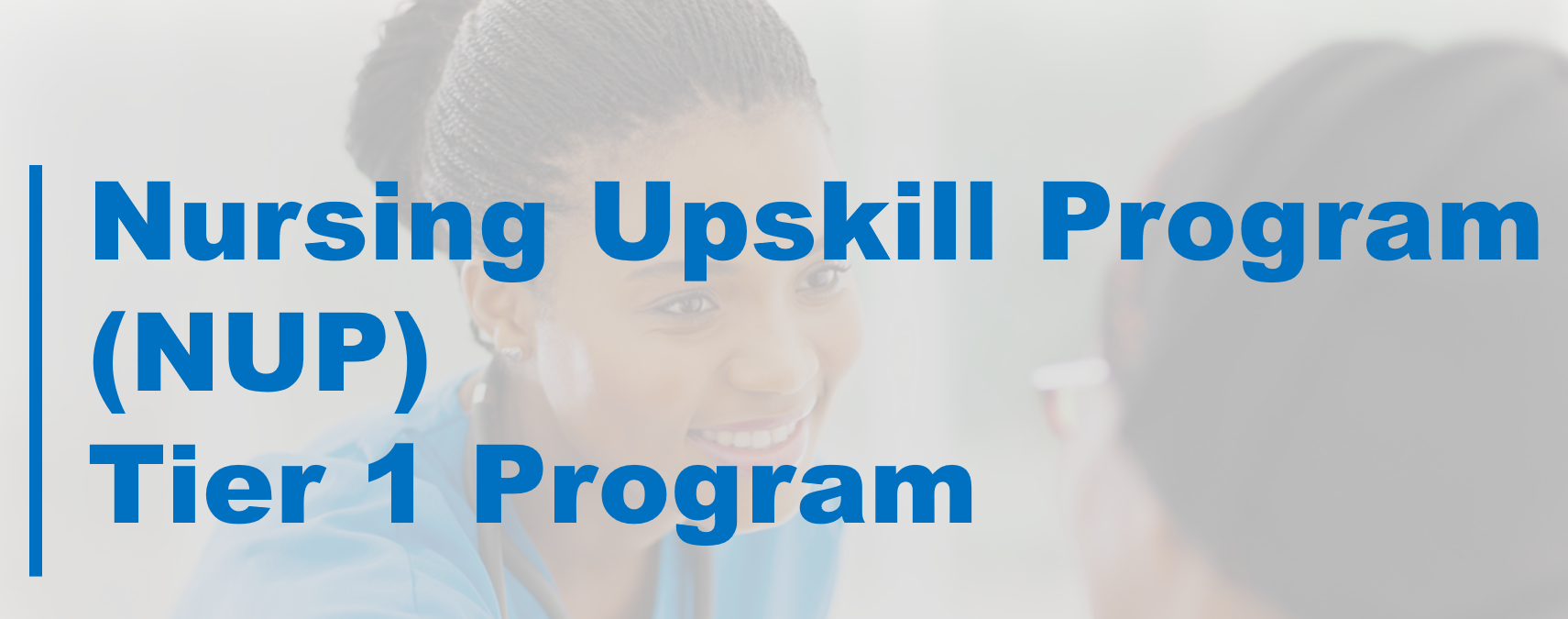
Welcome to Nursing Upskill Program (NUP)
This program is designed to allow Nursing staff to undertake CALHN accreditations, whilst also having their Basic Life Support, Manual handling, Acute Pain Service (APS) and aseptic technique updates. The day includes the following sessions -
- A-G assessment and management of the deteriorating patient.
- Introduction to Complex Behaviour.
- Acute Pain Service 101 and Update.
- Vascular Access (Cannulation and venepuncture accreditation) or Tracheostomy Care and management (See timetables below for more information).
Learning Intentions
Each session in NUP has separate learning intentions that will be covered at the start of each session.
This program links to The National Safety and Quality Health Service (NSQHS) Standards:
1. Clinical Governance Standard
2. Partnering with Consumers Standard
3. Preventing and Controlling Infections Standard
5. Comprehensive Care Standard
6. Communicating for Safety Standard
8. Recognising and Responding to Acute Deterioration Standard
Timetable
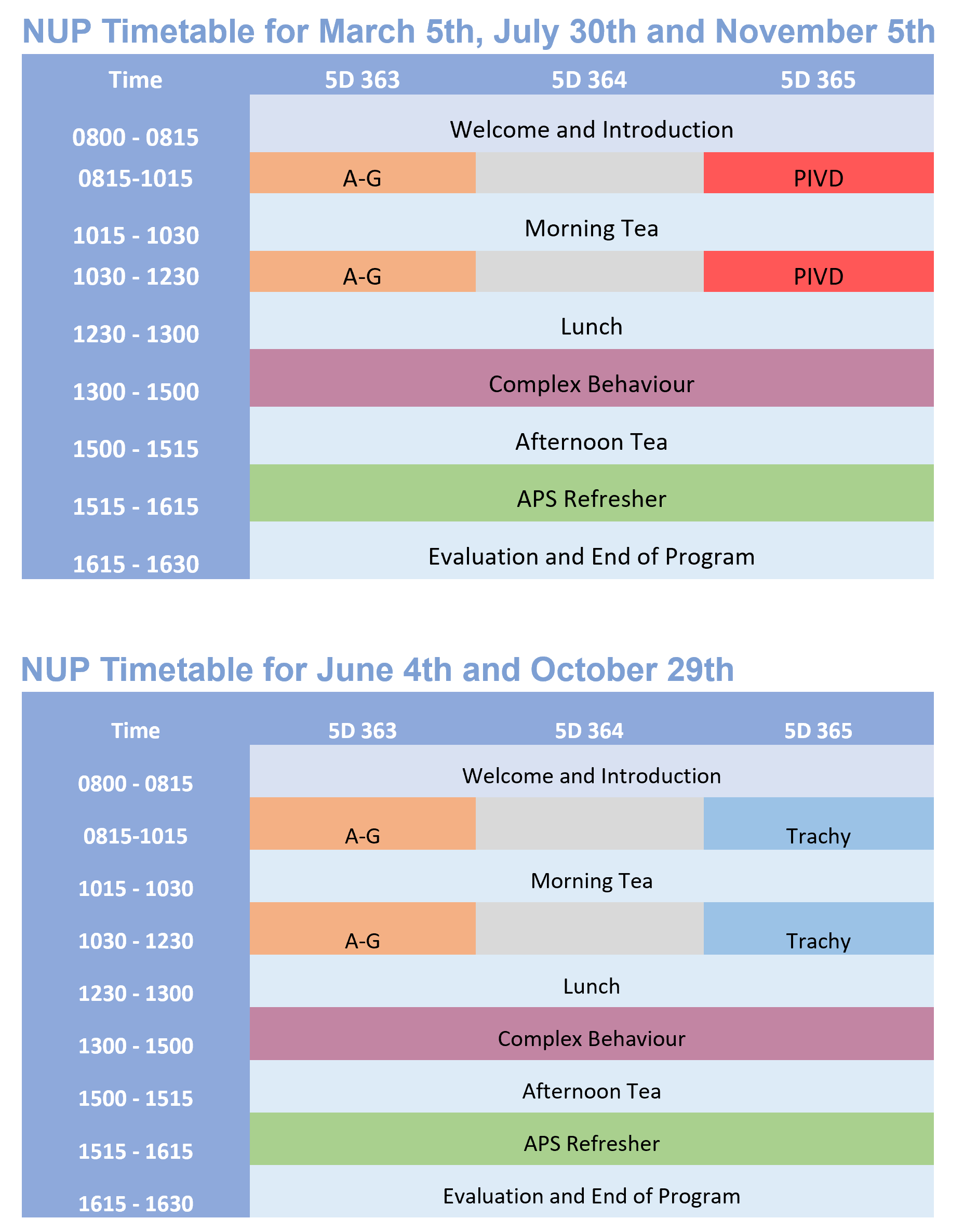
Intended participants: Nursing staff
Estimated Total Course Time: 8 hours face to face plus required pre-learning
Assessment Type: Blended - online pre-learning and practical workshop.
Frequency: Once-off training, designed to be accessible for review as needed by the learner
Click here to book into the Nursing Upskill Program
Palliative Care Study Day
Palliative and End -of-Life Care: Caring with Confidence
Both terms 'palliative care' and 'end of life care', focus is on enhancing quality of life, prioritising comfort and ensuring dignity for those facing life limiting illnesses. This approach shifts the focus from inevitable death to a focus on how one wants to live fully and meaningful and have confidence in their personal choices. The key question becomes, "how do you want to live"? this framework empowers the individual to define what matters most, whether it's spending time with loved ones, pursuing cherished activities or finding solace.
- Caring with confidence in essence is about building trust with compassionate caregivers, creating individualised care plans and honouring the individual's autonomy
- Palliative care provides holistic support, addressing physical, emotional and social and spiritual needs. The emphasis of pain and symptom management is a form of care that is delivered alongside curative treatments and is a forever evolving as priorities change.
- End of Life care is one component of palliative care, and assists the individual navigate their final stages with dignity and empathy.
SA Health Nursing and Midwifery Strategic Directions 2023- 2026: Priority - CARE
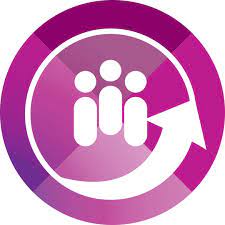
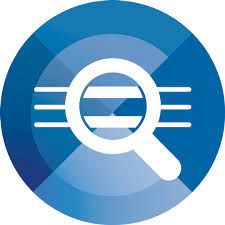




Australian Commission of Safety and Quality in Health Care:
Delivering and Supporting Comprehensive End- of- Life Care: a user's guide
Pharmacology for Nurses - Study Day
Pharmacology for Nurses - A day of Pills. Potions , Lotions and Magic
Medication administration continues to be one of the highest risk actions for nurses therefore having " A good understanding of pharmacology is essential to the safe administration of medications" (Dr. J. Stokes- Parish, 2023).
Educating
Nurses in line with the National Health Priorities – 2025 Medication
Safety Standard - 4
Pharmacology
plays a critical role in the field of Nursing and having an in-depth
comprehension of this subject assist’s nurses in safe medication
administration. Safe administration reduces medication errors and promotes
better patient outcomes, and this is never more relevant than in the
administration of the HIGH-RISK medications. LEARNING INTENTIONS: •
Review the principles of
pharmacokinetics, pharmacodynamics and pharmacotherapies in the administration
of the high-risk medications within the professional scope and standards of
nursing practice. •
Examine the actions, dosage
ranges, therapeutic uses, adverse effects and drug interactions of the ‘APINICH’ class of drugs ensuring quality
in health outcomes •
Apply the nursing processes,
inclusive of assessment, planning, implementation and evaluation to the
therapeutic use of High-Risk drugs in your area of practice. •
Demonstrate nursing leadership and
comprehensive professional knowledge to champion best practices principles in
all aspects of medication administration
Click here to book & solve the puzzle of the Mystery Box.....
Portfolio and Change Management for Clinicians Tier 1
Welcome to Portfolio and Change Management for Clinicians Tier 1
The Portfolio & Change Management Program is part of a professional pathway that is replacing the level 2 RN Professional Development Program. Please see the Further Development Recommendations on the course page for complementary sessions that link into this program.
This session will support the individual to successfully develop their professional portfolio including knowledge of NSQHS Standards and CALHN procedures.
This program is inclusive of all CALHN nurses.
Learning Intentions
The programs intentions are to:
- increase understanding of how to successfully manage your professional portfolio
- understand and embed best practice in relation to your portfolio
- promote a culturally safe work environment
- develop leadership skills to assist with change management
- use the portfolio to contribute to accreditation in the workplace
The program supports and links to Nursing and Midwifery Strategic Directions Workforce
This program links to all The National Safety and Quality Health Service (NSQHS) Standards, dependent on portfolio.
Dates
All workshops are booked via learning central. Please click here to book.
If you require further information, please email enquiries to:
nursingeducation.applications@sa.gov.au
or Telephone: 7074 3500
Preventing and Responding to Complex Behaviours (PRCB) Training – Foundation
Welcome
The Preventing and Responding to Complex Behaviours – Foundation program aims to develop the skills, knowledge, attitudes and behaviours required to prevent and respond appropriately to people with complex behaviours.
PRCB is open to all CALHN clinical employees.
This program (8 hour workshop) promotes a preventative approach to behaviour support and is based on principles of person-centredness, trauma informed care and safety maintenance.
Learning Intentions
Participants are offered the opportunity to identify their own learning needs to be explored in session.
In addition, discussion will include:
- Practice governance and policy
- Key legal factors that influence practice, consent and decision making
- Person-centred care and trauma informed care
- Preventive planning strategies
- Recognition of and response to escalating behaviour
- Situational awareness and maintaining safety
- Debriefing and documentation
Dates
All workshops are booked via learning central. Please click here to book.
If you require further information, please email enquiries to:
nursingeducation.applications@sa.gov.au
or Telephone: 7074 3500
Safety Interventions Training Foundation
This program is recommended for staff who work in areas a high-exposure areas where behaviours of concern are a feature e.g. Emergency Department, Mental Health, Brain Injury, Complex Geriatric Care, Prison Health, emergency response personnel.
All CALHN Staff can attend at any site, however:
*** Mental Health Staff are advised to attend this training at Glenside Campus***
The Safety Interventions programme aims to provide the skills to build an effective culture of safety within your area of practice. The programme is a licensed product of the Crisis Prevention Institute (CPI) and will be delivered to you within a legal and professional framework consistent with the National Safety and Quality Health Standards, and in alignment with Central Adelaide Local Health Network Policies and procedure and policies.
The program and links to Nursing and Midwifery Strategic Directions Care
The program links to the National Safety and Quality Health Service (NSQHS) Standards:
8. Recognising and Responding to Acute Deterioration Standard
Intended Participants: staff who work in areas a high-exposure areas where behaviours of concern are a feature e.g. Emergency Department, Mental Health, Brain Injury, Complex Geriatric Care, Prison Health, emergency response personnel.
Estimated course time: 8 hours.
Assessment Type: summative and formative assessment occur within the workshop
Frequency: yearly renewal
Cost: a $50 fee applies for the resource workbook, payable by your employing unit via journal transfer.
Click here to book into Safety Interventions Foundation Training

Safety Intervention Training (Glenside Health Services)
This training replaces the previous Managing Actual and Potential Aggression (MAPA) mandatory training for CALHN Mental Health Clinical Program staff. The below is a guide to assist you in enrolling in the correct program.
Dates, Times and Locations
All training sessions are 0800-1630. Training will be conducted in the Administration & Learning Services Building at Glenside Health Services.
Safety Intervention (Foundation)
20 May 2025 (FULL)
3 June 2025 (FULL)
25 June 2025 (FULL)
1 July 2025
23 July 2025
2 September 2025
10 September 2025
14 October 2025
22 October 2025
11 November 2025
18 November 2025
9 December 2025
Safety Intervention (Advanced)
Please contact Mental Health Nurse Education Services for enrolment in this training.
click here for application form
Safety and Quality Fundamentals for Clinicians - Tier 1
Join us on a journey to elevate your expertise in Safety and Quality. The program aims to empower healthcare professionals through promoting a culture of transparency and continuous improvement in healthcare delivery.
This workshop delves into critical areas such as the advocacy for safety through the power of speaking up, understanding the intricacies of safety learning systems and data capture, mitigating hospital-acquired complications, and fostering open discourse. Explore the invaluable learnings and prevention strategies derived from these areas. Whilst venturing into the world of quality improvement and tailoring the application to your area of practice.
This program support and links to Nursing and Midwifery Strategic Directions Innovation.
This program links to The National Safety and Quality Health Service (NSQHS) Standards:
1. Clinical Governance Standard
Intended participants: Nursing and other Healthcare staff.
Estimated Course Time: 8 hours
Assessment Type: Blended - online pre reading, face to face workshop
Frequency: Once-off training, designed to be accessible for review as needed by the learner
Please Click Here to sign up.
Supported RN and EN Program CALHN
Supported RN and EN Program Applications – now open for 2024 intakes
The Supported RN & Supported EN Program are 6-month
programs for newly registered or enrolled nursing staff and aim to provide access to additional clinical
support and education to facilitate the transition from novice to advanced
beginner. The Supported RN & Supported EN Programs are closely aligned to
the RN Transition to Professional Practice Program.
There will be intakes into the program in 2024 between March and September with pre-allocated dates for each Professional Development Day.
NUMs/NMs/NEs - If any newly registered or enrolled nurses in your area may benefit from this program, please review information provided on the Early Career Transition Programs SharePoint page to ensure they meet the eligibility criteria and they can be supported to complete program requirements prior to completing the application form.
New Nurses – Further information regarding the Supported RN and EN Program can be found here: 2024 Early Career Transition Programs. If you think this program is relevant and appropriate to support your transition to professional practice, please discuss with your NUM. To enrol in the Supported RN and EN Program, your NUM will need to complete the application form on your behalf. You will be informed of a successful application.
A self-directed transition program may also be an option. Please read the information below regarding the self-directed approach made available by the Nursing and Midwifery Office.
Self-directed Program – For new nurses not participating in an Early Career Transition Program, the SA Health Nursing and Midwifery Office Transition Programs provide a complementary learning pathway with potential for a self- directed approach, for growing the professional and workplace capability of nurses and midwives. The e-learning modules, developed as part of the TPPP, contribute to core learning experiences for participants in the ‘Self-directed Program’. The e-learning modules contain the core information required to support the transition of the individual nurse and midwife into professional practice as capable and confident clinicians. For more information, please visit: Course: Resources for Coordination and Support Staff and Managers (learningcentral.org.au)
To enquire further regarding the programs, please contact health.ectpcoordinators@sa.gov.au or phone: 70743500
Tracheostomy Management - Practical Sessions CALHN
Aim
This education program aims to provide health care professionals with accreditation in tracheostomy management and deliver the theoretical components necessary to ground your practice in the care of a patient with a tracheostomy. Annual accreditation is required.
The same practical session provides training for staff needing initial accreditation as well as staff needing their yearly refresher.
Learning Outcomes
On completion of the Principles of Basic Tracheostomy Management online resource and practical session the learner will be able to identify:
- Important legal, professional and ethical issues related to patient care, including tracheostomy management
- Anatomy and physiology of the trachea and surrounding structures and the specific features of tracheostomy tubes
- Indications and purpose for a tracheostomy
- Routine and emergency tracheostomy care
- Local policy and guidelines associated with the care of patients who have a tracheostomy or total laryngectomy.
- Laryngectomy care and management if working with patients who have a laryngectomy
Pre-requisites
In order to attend and actively participate in a Tracheostomy Management practical session please complete the following:
- Online learning modules, resources and videos prior to attending the practical session. You will need to achieve 100% for successful completion.
- Advanced Modules If your clinical area accepts patients with laryngectomy.
Post Requisites
- review local policies and procedure to consolidate learning
- supervision of their practice skills of suctioning, inner cannula cleaning, dressing and tape change in the clinical area to ensure safe practice and opportunity for further learning.
- reflect on any feedback given during the session or during the supervised skills performance.
The online modules must be completed prior to participation in the practical session.
maximum 8 participants
All sessions held 13.30-1530
To book into available sessions, click on link below, and sign in.
Click here to book in
For further information contact
Gloria Munro - gloria.munro@sa.gov.au
Vascular Access Program: including Venepuncture / Peripheral Intravascular Cannula (PIVC) Insertion

The Central Adelaide Local Health Network (CALHN) Vascular Access Program is a selection of courses aiming to provide the fundamental skills and knowledge of vascular access topics. These currently include; Venepuncture, Peripheral Intravenous Catheter & Totally Implanted Vascular Access Device.
All staff are required to have the appropriate level of training prior to undertaking Vascular Access procedures e.g. managing a PICC line, inserting a PIVC, accessing a TIVAD, or Ultrasound guided cannulation. Vascular access is a time of increased risk of complications, infection and injury to patients. Data from Australia and overseas indicate that a significant proportion of patients do not receive best practice care for their vascular access devices at time of insertion and ongoing management.
Aim: The intention of this course is to improve the knowledge and practice gap between guideline recommendations and current practice, in order to reduce the rates of complications and patient harm.
Intended Audience: CALHN Nursing Staff requiring accreditation in one or more of the Vascular Access Specialty Courses.
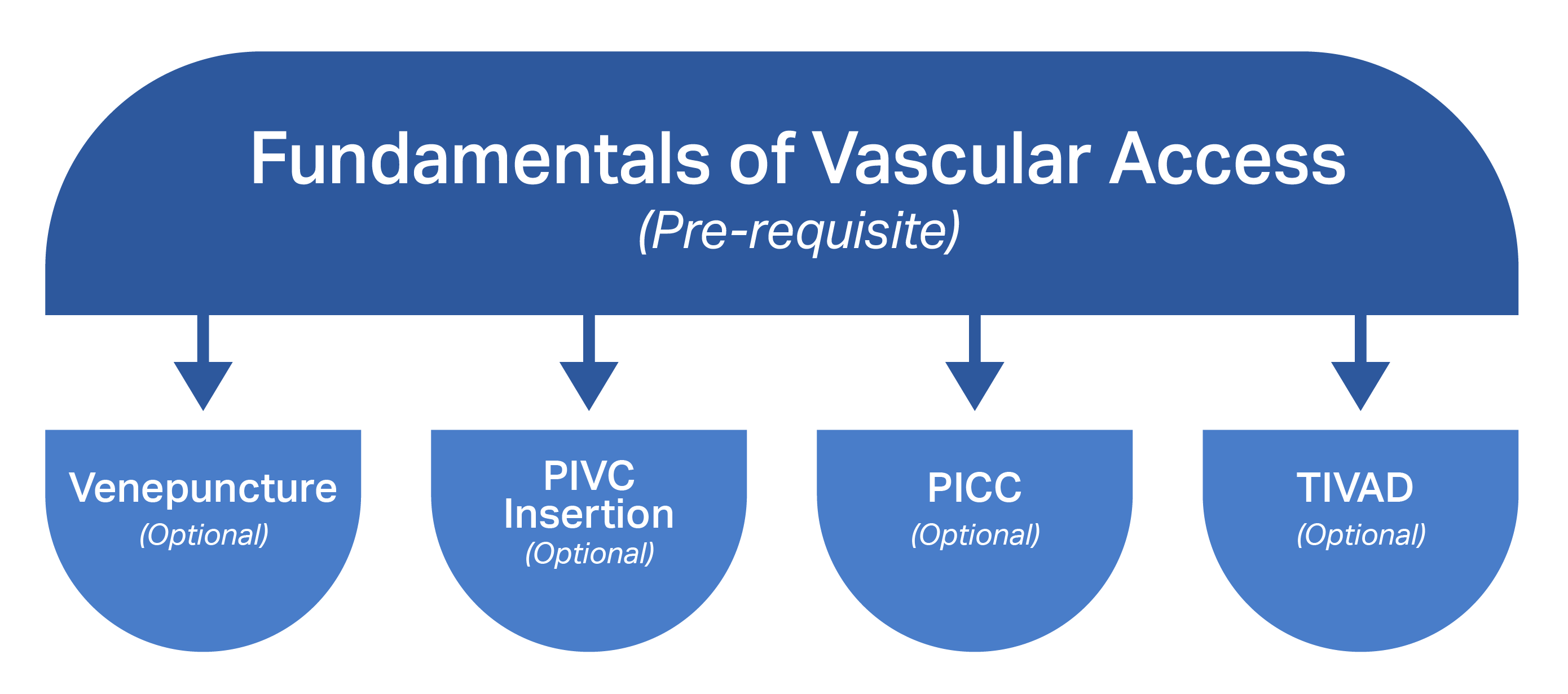
Click here to access the program
If you require further information, please email enquiries to:
nursingeducation.applications@sa.gov.au
or Telephone: 7074 3500
Wound Care Education
Wound Care Education
Wound Care training and education takes multiple forms in CALHN. For more information and to book for upcoming education opportunities
Click Here
Wound Care Education Lead: Chris Spigiel, please forward enquiries to chris.spigiel@sa.gov.au
Trauma Informed Care and Practice - Glenside Health Services
This session is available to CALHN staff only.
Workshop Aim
Trauma has a significant impact both personally and economically on a Societies’ functioning and well being. Having a shared and linked approach to preventing and assisting those who have or are experiencing trauma is globally recognised. This workshop aims to promote across the SA Health workforce a shared perspective of a trauma informed approach which engages and builds connection between relevant and influential systems.
Learning Outcomes
At the end of this workshop, clinicians will have a greater understanding of:
> Understanding Trauma (the 3 E’s of Trauma)
> Concepts, language and approaches of a Trauma Informed Approach
> Neural and brain influences
> Key assumptions and principles
> Implementing a Trauma-Informed Approach (six key principles)
> Types of Trauma (Individual, community)
> Engaging around trauma and cross sector collaboration
> Recovery and healing
> Organisational uptake, monitoring and review
Dates, Times and Location
Sessions below will be held at Glenside Health Services in the Administration and Learning Services building.
Session Dates and times are:
19 March 2025 (0900-1700)
6 May 2025 (0900-1700)
17 September 2025 (0900-1700)
25 November 2025 (0900-1700)
Should these dates not be suitable, sessions can be set by negotiation. A minimum number of eight employees are required for a session to be held. Sessions can be negotiated to be held at Glenside Health Services or within the workplace. Please contact Annette Farrell to organise (annette.farrell@sa.gov.au).
Applications
Please note the "submit" button may not work on some computers. This is due to a Google / Adobe Acrobat / PDF conflict error. If the completed application form does not attach to an email when the "submit" button is clicked, please save the completed application form and email to health.mentalhealthnurseeducationservices@sa.gov.au
